 Petzlover
Petzlover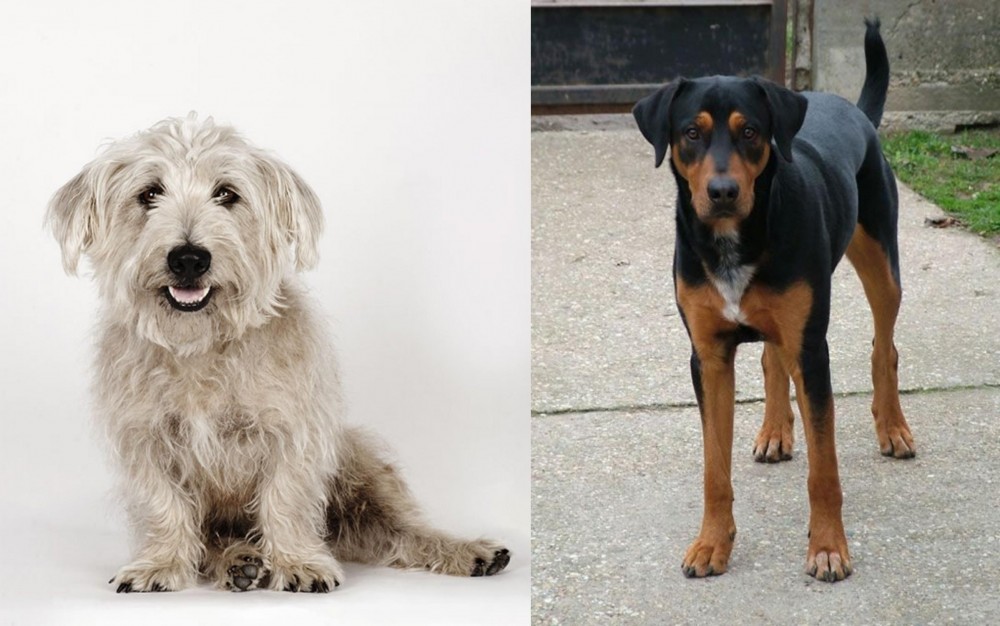 Glen of Imaal Terrier is originated from Ireland but Hungarian Hound is originated from Hungary. Glen of Imaal Terrier may grow 29 cm / 11 inches shorter than Hungarian Hound. Glen of Imaal Terrier may weigh 11 kg / 24 pounds lesser than Hungarian Hound. Both Glen of Imaal Terrier and Hungarian Hound has almost same life span. Glen of Imaal Terrier may have less litter size than Hungarian Hound. Both Glen of Imaal Terrier and Hungarian Hound requires Low Maintenance.
Glen of Imaal Terrier is originated from Ireland but Hungarian Hound is originated from Hungary. Glen of Imaal Terrier may grow 29 cm / 11 inches shorter than Hungarian Hound. Glen of Imaal Terrier may weigh 11 kg / 24 pounds lesser than Hungarian Hound. Both Glen of Imaal Terrier and Hungarian Hound has almost same life span. Glen of Imaal Terrier may have less litter size than Hungarian Hound. Both Glen of Imaal Terrier and Hungarian Hound requires Low Maintenance.
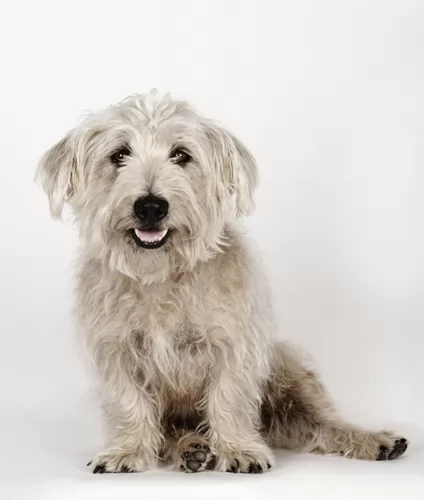 Hailing from Ireland and known also as the Wicklow Terrier or just Glen, the Glen of Imaal Terrier was used to get rid of rats, badgers and otters as well as being a good all-round farm dog.
Hailing from Ireland and known also as the Wicklow Terrier or just Glen, the Glen of Imaal Terrier was used to get rid of rats, badgers and otters as well as being a good all-round farm dog.
Using his strength, he was good at digging into burrows to root out badgers, but unlike other terriers, he wouldn’t go on and on yapping around his prey. He isn’t an excessive barker.
The terrier was recognised by the Irish Kennel Club in 1934 and later by the American Kennel Club in 2004. The Canadian Kennel Club recognized Glens in 2017.
 The Hungarian Hound, also known as the Transylvanian Hound, originated in ancient Hungary as a hunting dog. At the time there were Asian Hounds that traveled with Hungarian Magyar tribes into Transylvania. As early as the 9th century it is believed that these Hungarian dogs were crossed with Celtic Hounds and local dogs. The result is the Hungarian Hound. These dogs were incredibly popular throughout Transylvania.
The Hungarian Hound, also known as the Transylvanian Hound, originated in ancient Hungary as a hunting dog. At the time there were Asian Hounds that traveled with Hungarian Magyar tribes into Transylvania. As early as the 9th century it is believed that these Hungarian dogs were crossed with Celtic Hounds and local dogs. The result is the Hungarian Hound. These dogs were incredibly popular throughout Transylvania.
This scent hound almost became extinct but was saved by intense breeding during the latter part of the 21st century. They developed two kinds, short and tall, for different types of hunting. The tall dogs hunted boar, bison, lynx and bear. The short dogs hunted hare, fox and chamois.
Only the tall dogs exist today. Some Hungarians raided parts of Europe and took the dogs with them. There was then a crossing breeding with Polish dogs. The tall dogs exist today in Hungary and Romania. The Hungarian Kennel Club recognized the breed and the United Kennel Club (UKC) from the United States recognizes them. No major clubs such as the AKC (American Kennel Club) or the British Clubs. The breed was accepted into the AKC Foundation Stock Service Program
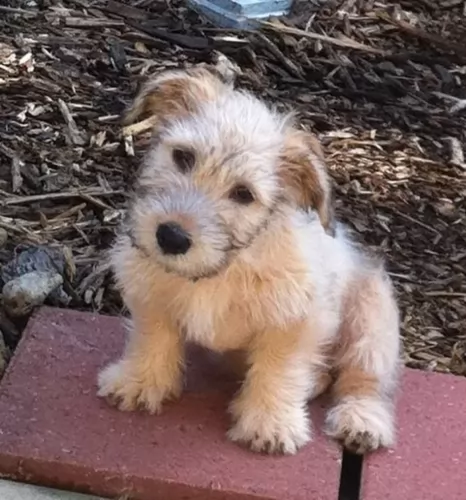 An interesting fact with the Glen of Imaal Terrier is that this is a dwarf breed, being a big sized dog on short legs, with the front feet turning out.
An interesting fact with the Glen of Imaal Terrier is that this is a dwarf breed, being a big sized dog on short legs, with the front feet turning out.
A typical Glen of Imaal Terrier stands at roughly 30 – 36cm and weighs up to about 16kg. Another interesting aspect with this dog is that it can take up to 4 years to reach maturity.
The head of this muscular dog is large, the ears are half erect, and while the tail has always been traditionally docked, it is often left long. The double coat of the dog is soft with the undercoat but he has a wiry outercoat. The color of the coat is essentially wheaten, tan or blue. The coat doesn’t shed much but some Glen owners strip excess hair a few times during the years.
Glen of Imaal terriers are energetic, easygoing and they make splendid pets for any family. He is more than happy to give up lying around for games and activity just to lie at his owner’s feet. He is an intelligent dog too and even though he is somewhat stubborn, he responds well to training and socialization. In fact training and socialization is important for every dog breed to prevent negative behavior and to ensure your pet is obedient.
 The Hungarian Hound is a medium sized dog, a scent hound with the same characteristics of the type of hunting hounds found in Mid-Europe. The breed is a hardy one with a long head slightly domed skull. The muzzle is short, and the jaws are strong. The lips are black, and the ears are round and hang. Their eyes are shaped like almonds and dark brown. The breed has large paws with cushioned pads and strong toes.
The Hungarian Hound is a medium sized dog, a scent hound with the same characteristics of the type of hunting hounds found in Mid-Europe. The breed is a hardy one with a long head slightly domed skull. The muzzle is short, and the jaws are strong. The lips are black, and the ears are round and hang. Their eyes are shaped like almonds and dark brown. The breed has large paws with cushioned pads and strong toes.
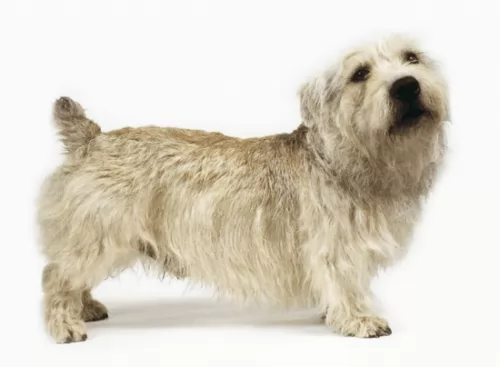 The Glen of Ismaal Terrier is more docile than other terrier breeds, but that doesn’t mean he isn’t feisty. He loves to play and is an adventurous dog, always on the lookout for exciting opportunities and to chase prey.
The Glen of Ismaal Terrier is more docile than other terrier breeds, but that doesn’t mean he isn’t feisty. He loves to play and is an adventurous dog, always on the lookout for exciting opportunities and to chase prey.
He is a good natured pet and he gets on well with adults, children and pets in the home. He can adapt well to life in the city or in the countryside so long as he is with his family members.
He isn’t a couch potato dog though, and wherever he lives, he will need a good amount of exercising. Treat him with the love and respect he craves, and you’ll have a wonderful canine companion.
 Children friendliness – This breed is very friendly with children.
Children friendliness – This breed is very friendly with children.
Special talents - Hunting independently and at a distance from the hunter.
Adaptability – Not an apartment dog. They need space and land.
Learning ability – They are very independent and intelligent.
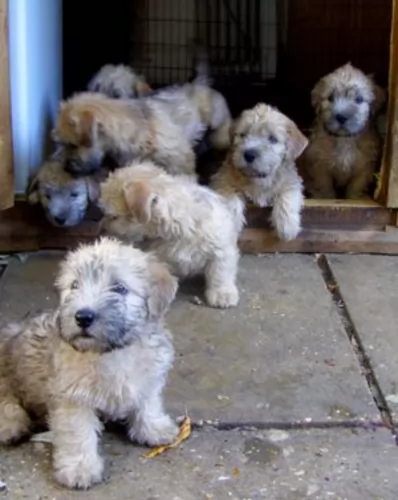 The Glen of Imaal Terrier is a feisty, healthy breed, particularly when he gets the best food there is, then he is not likely to get ill easily.
The Glen of Imaal Terrier is a feisty, healthy breed, particularly when he gets the best food there is, then he is not likely to get ill easily.
However, just like other dogs, he can be prone to certain health conditions such as hip dysplasia. When a dog is diagnosed with hip dysplasia, the socket part of the joint is poorly developed, so that is causes abnormal friction.
Inflammation and pain can be the result and your dog can become lame. Unfortunately, rapid weight gain with puppies can put more stress on the hips, and diets without the right balance of vitamins and minerals can be bad for good bone development.
 Even though this is an ancient breed they do face certain medical issues such as:
Even though this is an ancient breed they do face certain medical issues such as:
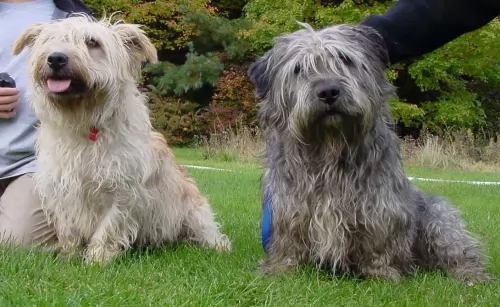 Caring for a Glen of Imaal isn’t going to be a huge job. This is what makes him such a wonderful pet as he is a straightforward pet, requiring little more than a brush to avoid the hair matting.
Caring for a Glen of Imaal isn’t going to be a huge job. This is what makes him such a wonderful pet as he is a straightforward pet, requiring little more than a brush to avoid the hair matting.
Check his ears, teeth and nails from time to time to ensure he is always in tip top condition.
If you intend making use of the convenience of commercially manufactured dog foods, the top quality one will provide you with balanced nutrition for your Glen and you can mix in some cooked brown rice, vegetables and chicken from time to time.
The Glen of Imaal Terrier is a small-breed dog and, he should be offered dog food that has been specially formulated for small, energetic dog breeds. You can also add in a little bit of raw meat into his kibble as a treat as this is important for keeping him free of skin allergies.
Make sure he always has a bowl of fresh, cool drinking water.
 Feeding the puppy – 1-3 cups of high quality food served in 3-5 meals per day.
Feeding the puppy – 1-3 cups of high quality food served in 3-5 meals per day.
Feeding the adult – 3-5 cups of high quality food served in 2-3 meals a day.
Points for Good Health – generally healthy
Games and Exercises – The Hungarian Hound is a hunting dog and therefore accustomed to and bred for a high level of exercise. Their instinct for hunting is really strong so make sure you do not let them off leash outside of a contained area. They excel at tracking, field trials, lure chasing, and fly ball.